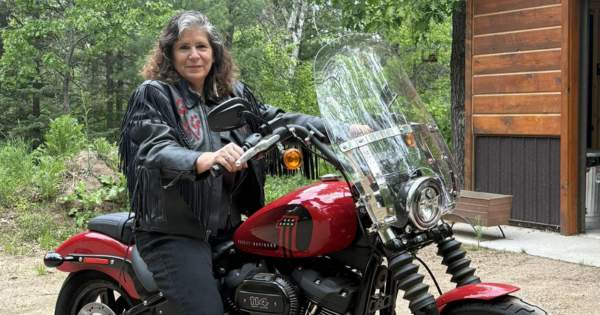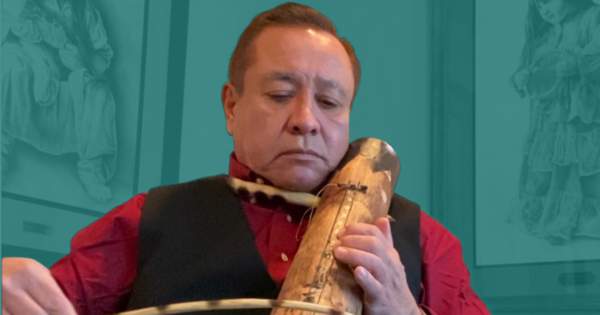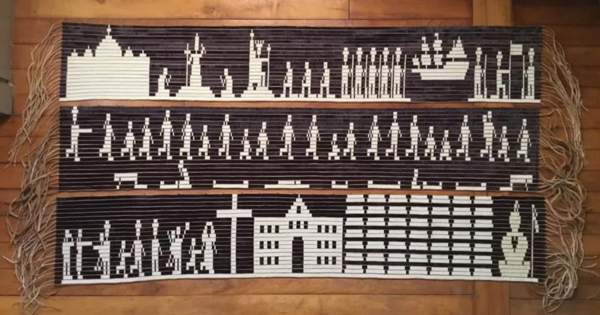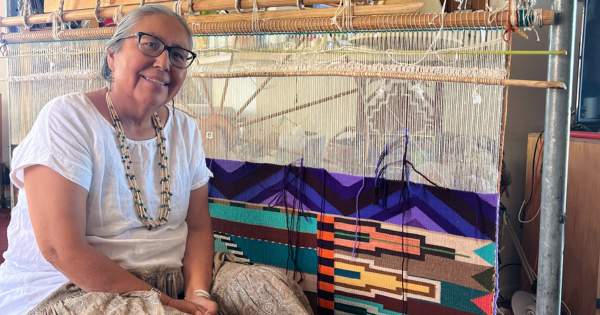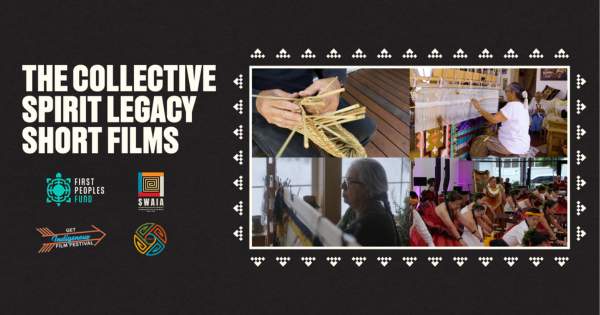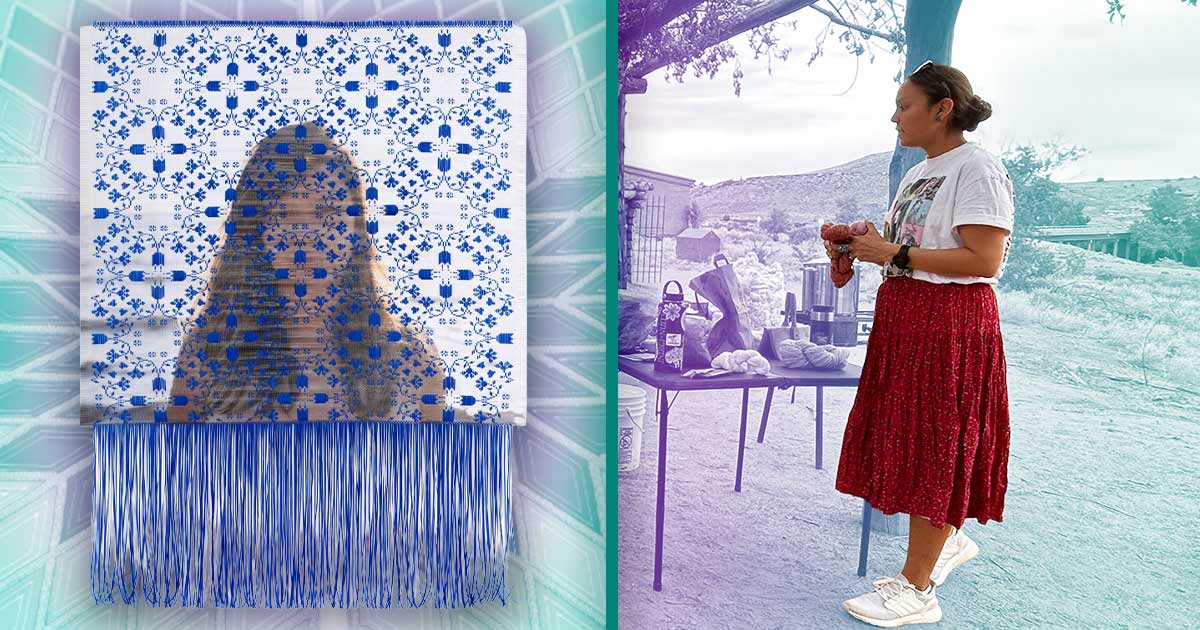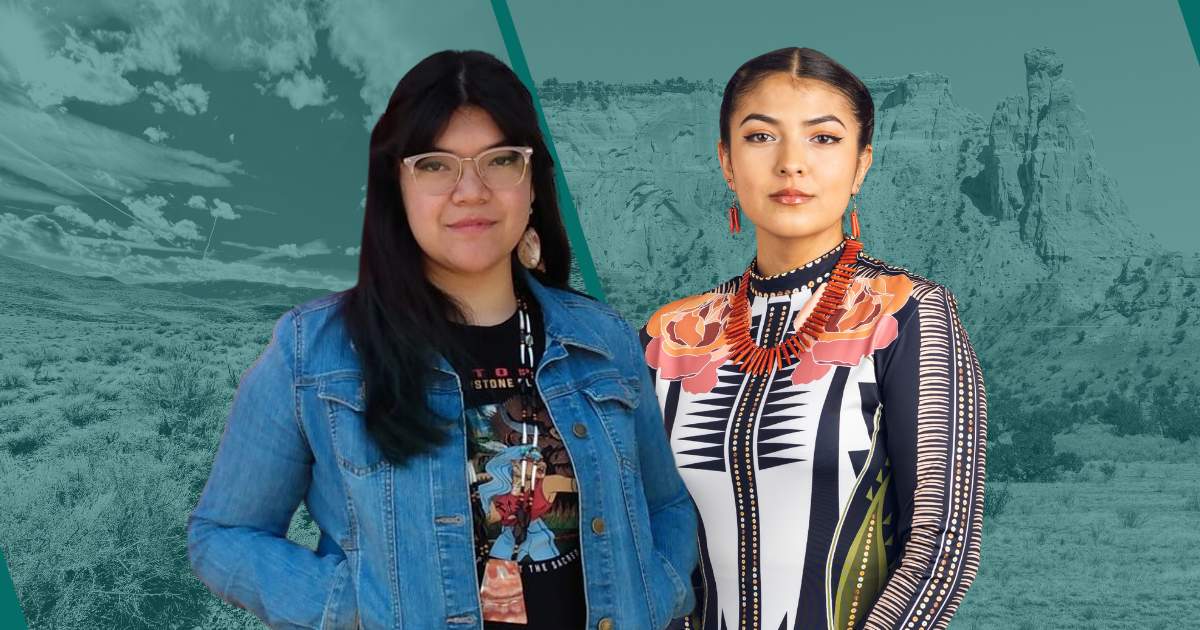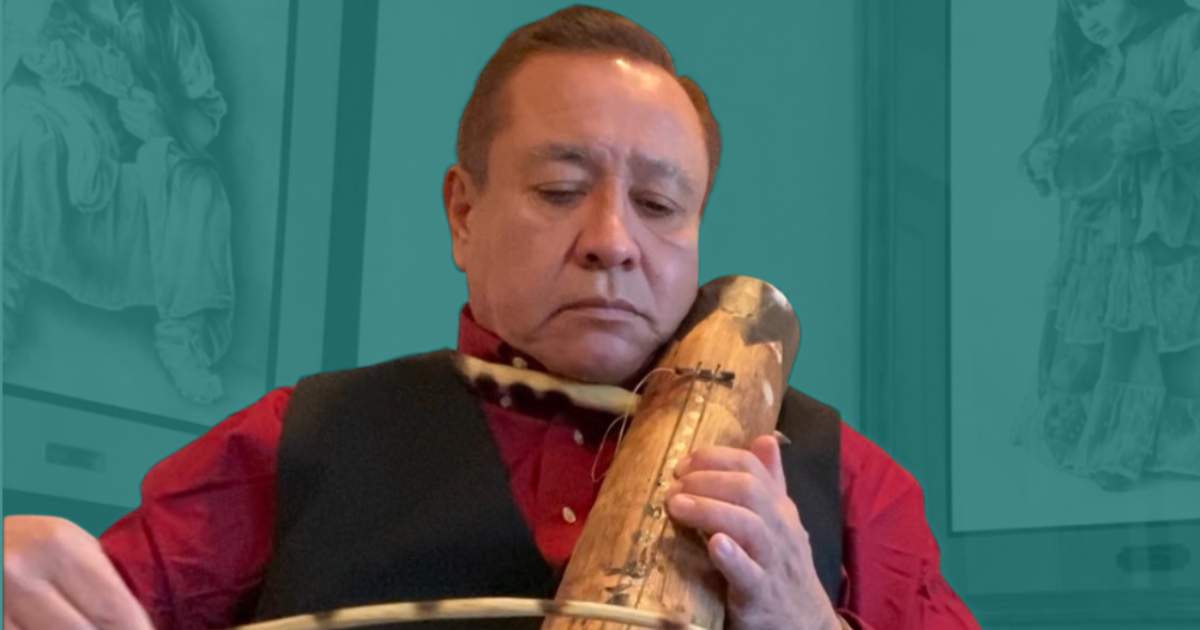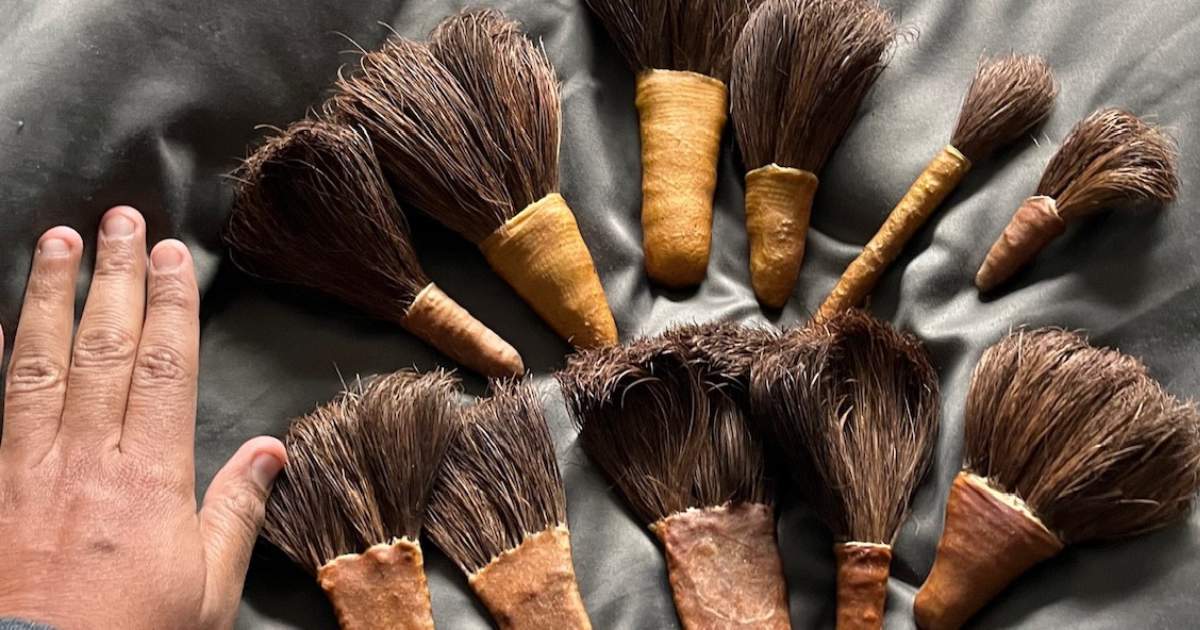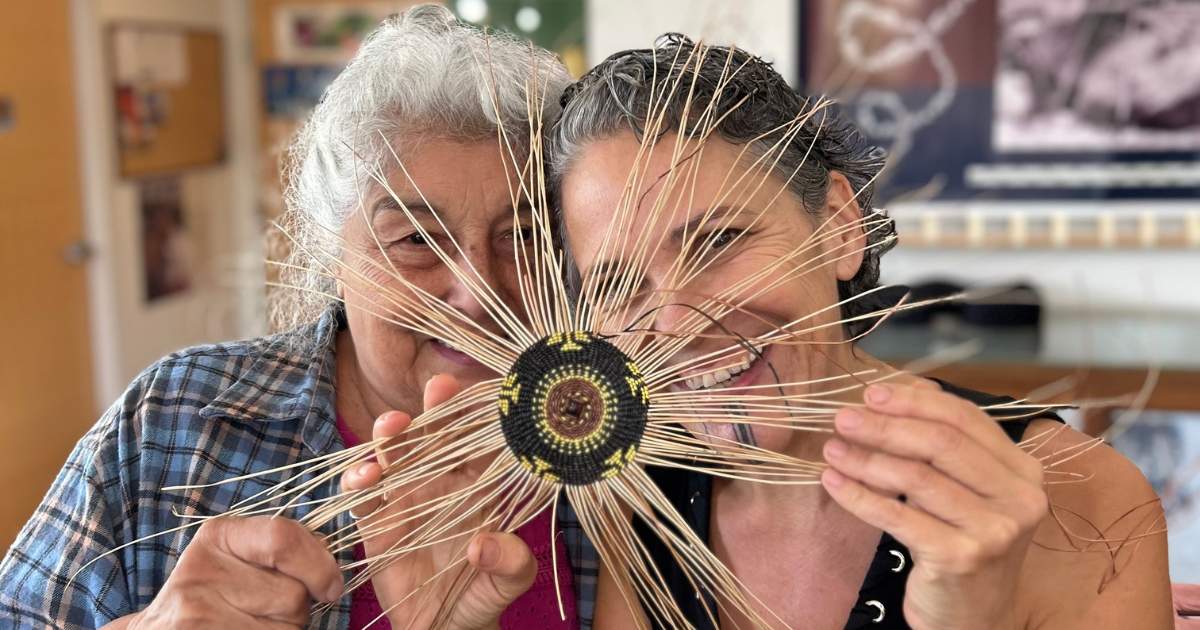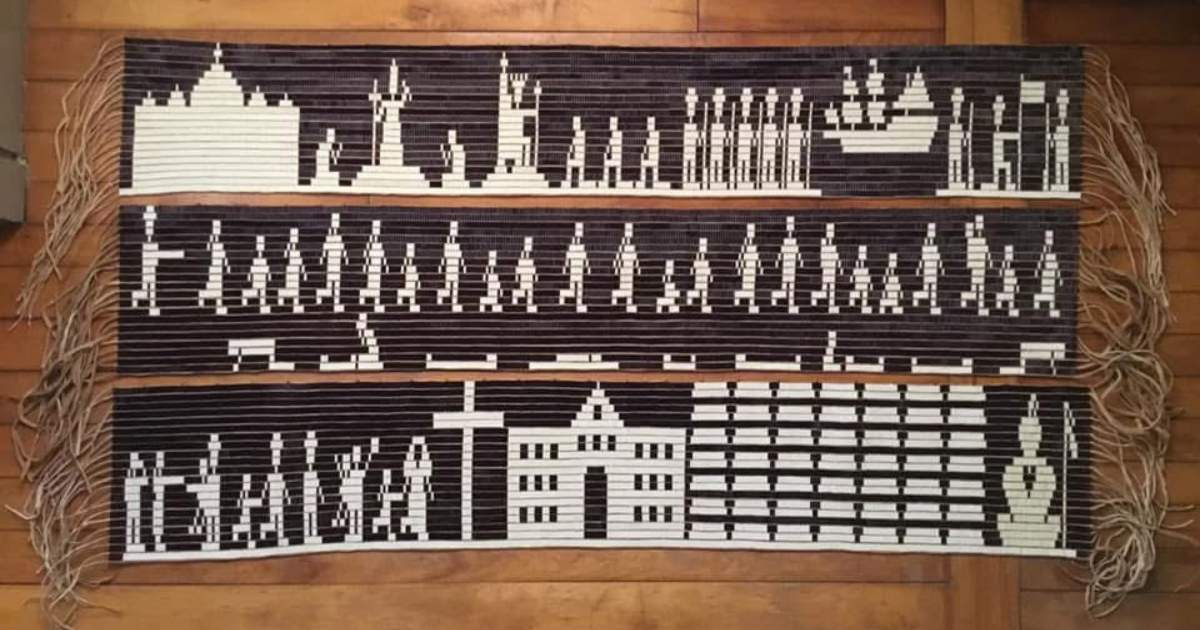
Native Artists Pivoting with the Times
“Watching from Los Angeles.”
“Love from Frisco, Texas.”
“Listening from Florida.”
“Saunders County, New England here.”
These comments and more popped up on Facebook as Lynette Two Bulls (Oglala Lakota) and Phillip Whiteman, Jr. (Northern Cheyenne) went live with an evening of traditional storytelling. The COVID-19 crisis continues to cause mass cancellations of performing and visual arts events across the country, including storytelling. Still, culture bearers like Lynette and Phillip are turning these challenging times into an opportunity to reach people across the U.S. and around the world. Viewers tuned in from Canada, France, Italy, and African countries.
Lynnette and Phillip are 2016 First Peoples Fund (FPF) Community Spirit Award Honorees, and Philip was awarded a 2007 Artist in Business Leadership Fellowship. They founded Medicine Wheel Model, LLC; Medicine Wheel Model—Beyond Horsemanship; and Yellow Bird, a grassroots, nonprofit organization. They teach their life model and do traditional storytelling throughout the U.S. and Canada to share the lifeways of Native people with teens, adults, and elders.
When Lynnette and Phillip started seeing their events being canceled in March, they decided to push through and learn how they could best connect with people online.
“Actually I like it, though it was challenging at first just getting used to doing things a different way,” Lynette says. “Especially with technology, it’s harder as you get older. But at the same time, I think it’s good to challenge yourself with all the available platforms. Artists are creative already, so we need to go with that and be creative in the way we reach people.”
Lynette and Phillip asked elders in their area if they would be willing to share traditional stories on camera for a multi-part online series. They hosted the special events through the Yellow Bird Facebook page. After the live recordings end, the videos are shared widely. The first has 5,000+ views and counting.
“We have to slow down and be quiet, listen to the stories because these stories have a very powerful message. I think that’s what resonates with people because the messages are timeless.
“It’s something that connects with people,” Lynette says. “We have to slow down and be quiet, listen to the stories because these stories have a very powerful message. I think that’s what resonates with people because the messages are timeless. The stories are not just history of long ago. No, this is a way of life that we live today, so it brings it to the present.”
Lynnette and Phillip only planned to host the traditional storytellings through March, but after the response they received, they brought them back for April, plus added more innovative ways to help bring light into peoples’ homes. They added Morning Coffee with Yellow Bird and Talk for Teens with Yellow Bird while continuing their wellness coaching through online video conferencing.
“I’m almost busier now than I was before,” Lynette says. “It’s exciting because we’re doing something different and something creative. We’re resilient people.”
The COVID-19 crisis hit performing artists hard when spring bookings were suddenly canceled. Kaloku Holt (Native Hawaiian), 2016 FPF Artist in Business Leadership fellow and executive director of the Ke Kukui Foundation, had a three-city tour lined up with other Native Hawaiian artists.
Now with much more time on his hands, Kaloku is using the time at home to pivot his work. He went live on Facebook with an informal music session, playing the piano and singing with his two-year-old son. To his surprise, someone in a mortgage company watched his performance, visited his website, and then booked Kaloku for a paid performance. Kaloku’s live performance for the company’s virtual party was a hit, and also directed viewers to his online tip fund.
A significant aspect of Kaloku’s work is event planning. Sponsored partly through an FPF Our Nations’ Spaces grant and hosted by Ke Kukui Foundation, the annual 4 Days of Aloha in July 2019 drew 40,000+ visitors to the Pacific Northwest for a celebration of Hawaiian art and culture. While Kaloku hopes the 2020 event goes as planned in July, they are prepared to scale it down or move it to later in the year.
With all the uncertainty, Kaloku is focused on the positives coming out for him, professionally and personally.
“Since I’m forced to be a homebody, I’ve noticed how much I was always on the go, go, go, and stressing myself out by being so busy,” he says. “But now I can really enjoy family time, spend time with my son. As far as work goes, and festival planning, doing shows, I got a chance to look over things and think, maybe I’m doing a little too much in a lot of different areas. Maybe scaling things down, but adding quality to the things that I can. I want to make sure I’m always creating. If I keep my mind busy creating, I think that’s what keeps me alive and energetic.”
Visual artists have experienced equal hardship with the crisis. Community Spirit Award honoree, Artist in Business Leadership fellow and FPF trainer Theresa Secord (Penobscot) took it upon herself to create a valuable list of tips for fellow visual artists.
“As an FPF fellow (basketmaker) I wanted to share some things I'm working on during the pandemic to try to keep art income coming in,” Theresa says. “Basically, encouraging them to stay in touch with buyers, collectors, fans and to be as effective as possible in online art marketing and their social media presence.”
She also created a virtual sweet grass braiding workshop with her grand-nephews as part of their distance learning to continue teaching traditional arts during this time.
“I think their great, great, great, great grandfather, a Penobscot tribal chief and basket seller [shown here in 1920] would be proud,” she says.
““We constantly have to adapt and adjust and be like water and be able to go with the flow. This is another opportunity to reach a broader audience of people from all walks of life.”
— Lynette Two Bulls
During this time of art being generously shared, it is important to remember that many Native artists make their living through performances and markets. Please consider supporting them through purchasing their art online, giving monetary tips during streaming performances, and contributing to the Resilience Fund through FPF.

